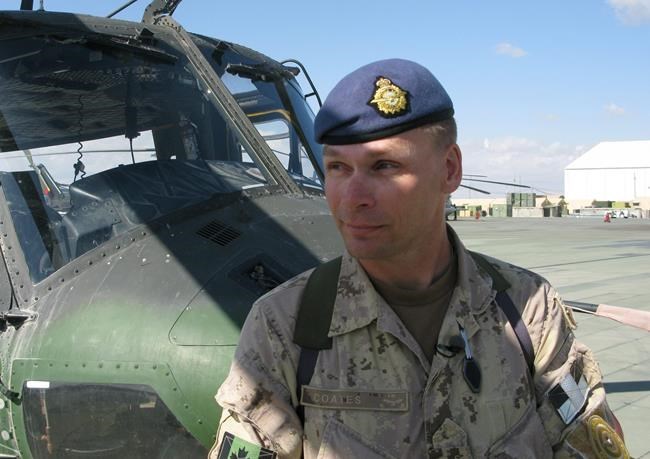OTTAWA — The head of the Canadian military called out Russia and China on Wednesday for their "antagonistic actions" even as he revealed that work has begun on identifying the scope and price of upgrading North America's defences, including the North American Aerospace Defence Command.
Chief of the defence staff Gen. Jonathan Vance would not provide a timeline or other details on upgrading Norad, but said they have to happen "relatively quickly" as the threat posed by Russia, China and others continues to grow.
Russia and China figured prominently during the first of an annual two-day defence conference organized by the Conference of Defence Associations Institute, in which numerous Canadian and allied military officers spoke before Vance provided the keynote speech.
Vance, who has served as this country's top military officer for nearly five years, warned that Canada and its allies are currently engaged in a "global fight over values" that goes beyond the traditional domains of land, sea and air to include space, cyberspace and information.
That fight threatens to upend the post-Second World War order that has benefited Canada, Vance added, even though it does not involve normal military operations. Rather, he accused Russia and China of advancing their aims through actions that fall just short of war.
"Currently, those actors use their antagonistic actions below the threshold of open, conventional conflict to avoid a full-scale response," he said. "At least for now."
Those actions include Russia's military incursions into Ukraine, its annexation of Ukraine's Crimean peninsula and incursions on other country's airspace as well as China's actions in the South China Sea, "malign" activities in cyberspace and "coercive" economic and diplomatic actions.
"These below-the-threshold (of war) activities are a death by a thousand cuts," Vance said. "In isolation, they would not merit large-scale responses. ... But viewed, cumulatively, it is clear that they demand a new approach."
Vance indicated that new approach is still a work in progress, but it includes the need to detect and deter a variety of threats.
Yet at the same time, traditional military threats from Russia and others continue to not only exist but evolve, such as the development of new long-range, non-nuclear missiles that are difficult to detect. Hence the need to upgrade Norad.
The Norad system was originally built in the 1950s to spot Soviet nuclear missiles. The system was last upgraded in the 1980s, and officials have warned it cannot detect the new, long-range Russian weapons.
The Liberal government's 2017 defence policy included plans to modernize Norad to defend against the threats of today and tomorrow, but talks with the U.S. have so far been minimal and no money has been set aside for what is expected to be a multibillion-dollar project.
While Vance said protecting North America will require a more holistic approach, protecting against foreign missile attack is essential because such weapons "have the potential to hold North American decision-making hostage in a period of conflict.
"Even a modest attack could hamper or cripple Canadian response to crisis or harm Canadians or critical infrastructure."
Hours before Vance took to the stage, the Canadian deputy commander of Norad joined a growing chorus calling for the modernization of North American defensive systems even as he described Russia as the "greatest short-term threat" to the continent.
Lt.-Gen. Christopher Coates said a military attack by Russia is not likely in the immediate future, but it has been racing to develop a variety of non-nuclear weapons and find gaps in North America's ability to defend against cyber, information and economic attacks.
Coates suggested Canada and the U.S. "kept our eye off the ball for a while" by not taking the threat posed by Russia seriously. The implication is that North America is now playing catch up.
While it will ultimately be up to the government to decide what Norad looks like in the future — and how much it will cost to get there — Coates said an update is required and that will cost money and effort.
"I think all Canadians should recognize the importance that that partnership brings to our defence and security and that we need to put a value on it," he said.
"Of course, it's not a blank cheque ... But there's something that's required. There's some level of modernization that I think would be necessary to ensure Norad does remain relevant, that we cause Russia and others, perhaps, to view North America as not a soft target."
This report by The Canadian Press was first published March 4, 2020.
Lee Berthiaume, The Canadian Press



